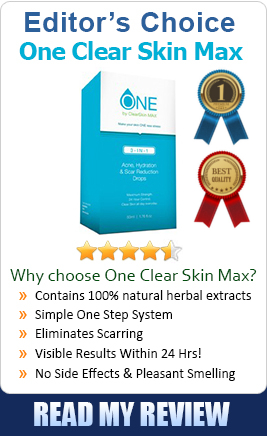Treating Adult Acne with Topical Antibiotics
Adult acne is a common problem which is faced by people. Benzoyl peroxide as well as salicylic acid is two important elements but in case you are not getting relief then antibiotics can be prescribed by the doctor.
Clindamycin and erythromycin are the most prescribed antibiotics for topical Adult Acne treatment. Tetracycline is not used frequently. Topical antibiotics are available in a wide range including gels, pads, lotions and toner-type solutions.
In addition, topical antibiotics can be found in medications containing other Adult Acne treatments such as benzoyl peroxide or Retin A (tretinoin).
How They Work:
Just like oral antibiotics, topical antibiotics inhibit the bacteria growth. A main cause of Adult Acne is the proliferation of the acne-causing bacteria Propionibacteria acnes (P. acnes). This bacterium is an ordinary skin resident, but in those with Adult Acne the P. acnes population grows out of control. These bacteria aggravate the skin’s follicles, making inflamed pustules and papules.
Applying a topical antibiotic minimizes the P. acnes amount, and helps to control acne. Because P. acnes develop inflammation, topical antibiotics work best for inflamed acne, rather than non-inflamed blemishes or blackheads.
Common Usage Directions:
Most topical antibiotics are being used once or twice per day. Before application, the skin should be thoroughly cleansed and dried. The medication is then used all over areas prone to Adult Acne breakouts.
Possible Side Effects:
Majority of people can use topical antibiotics without problem. Side effects, when they do occur, aren’t generally too bothersome. The most common side effects are:
- Stinging or burning when medication is being used
- Dryness, flakiness, or skin peeling
- Mild skin itching
- Skin yellowing (tetracycline only)
Seldom, topical antibiotics affect serious side effects such as:
- Stomachache
- Vomiting and/or severe diarrhea
- Rash
- Unexplained bruising or bleeding
Tips for Using Topical Antibiotics:
Share all your medication details with your doctor, like topical treatments and most available Adult Acne products. Also, tell your doctor if you are pregnant.
To minimize the burning or stinging chance, wait at least 30 minutes after cleansing and/or shaving before applying your medication.
Using astringents, alpha hydroxy acids, aftershave or other exfoliating products can enhance the chance of developing uncomfortable irritation and dryness.
Inform your doctor right then if you feel any side effects.
Adult Acne Creams:
Understanding Topical Antibiotics Adult Acne Creams:
There are lots of solutions available for adult acne but adult acne vulgaris is the best medicine which you can give to your skin. This medication is only given when OTC medication does not work on adult acne. It can be in combination to other medicines as well as for separate treatment too. The solution helps you to overcome the problem of adult acne and give a clear skin.
The Common Topical Antibiotic Adult Acne Creams:
To use topical antibiotics is very simple. Even If you use the cream twice in a day it will be good but ensure that you apply a thin layer. When the treatment begins avoid the use of the strong cleansers which can affect your treatment. Some of the widely used creams for adult acne are:
1.Clindamycin
This medication also includes Benzoyl peroxide and phosphate. This helps by killing the bacteria which leads to acne. It also assists in getting rid of dead skin cells from the skin’s surface layers. There are side effects to using this medication and you need to watch out for these side effects
They are fairly tolerable and mild though. These side effects may comprise irritation, skin dryness, and peeling. You might also witness increase oil production, skin burning or itching, skin swelling, rash and slight breathing difficulty.
If the medication does not suit, you could have an allergic reaction to it. If you feel an allergic reaction, you need to instantly cease from using the medication and consult with your healthcare provider instantly.
2.Erythromycin
This medication is novel in a way that it utilizes oxygen in order to clear the bacteria affecting the acne. It assists to clean off blockage from the follicles and skin pores. The best thing about erythromycin is that you can use it even in your pregnancy.
So, pregnant women who are most likely to suffer from Adult Acne brought about by hormonal imbalances may resort to erythromycin as treatment without a worry that this will cause any risk to their baby. There are, however, slight side effects to erythromycin.
People using this medication may witness redness, skin itching, dryness, flaking, enhanced oil production, and a feeling of slight skin burning. Again, if you have any allergic or adverse reaction to erythromycin, you need to consult with your primary healthcare provider instantly.
One needs prescription for Clindamycin and Erythromycin. These medications are more useful than OTC Adult Acne medications. You will also notice faster results with prescription Adult Acne medications.
Comparing Topical And Oral Adult Acne Medications:
Oral Adult Acne medications are also available and maybe more known than topical Adult Acne cream products. But people will soon develop resistance to these antibiotic medications and this product will lessen its effectiveness. This is why people are not told to use oral medications longer than half a year. Due to this reason topical Adult Acne creams are prescribed for chronic acne.
What action you should take if you are a chronic Adult Acne sufferer? You cannot use oral antibiotics as a stand-alone medication far longer than six months but you can use a topical Adult Acne cream over six months. Number of people looks for topical antibiotics Adult Acne cream because they will be able to avoid the dangers related with oral antibiotics. It’s easy to use and it’s easily absorbed by the skin.



